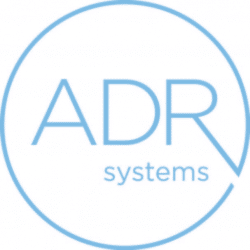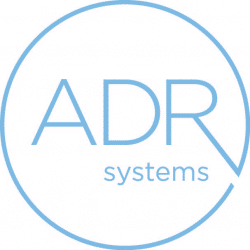A high-low agreement is a tool by which disputing parties can set maximum and minimum recovery values and obviate risks at play in litigation. If the plaintiff is awarded a sum in excess of the maximum, they recover the maximum value agreed to in the high-low agreement. If the defendant prevails, the plaintiff at least recovers the minimum value. As such, the plaintiff is assured of at least some recovery, and the defendant is protected from the risk of an exorbitant award.
Therefore, a high-low agreement converts ADR processes like arbitration and binding mediation into non-zero-sum games and is a useful tool that parties can use to help resolve their disputes.
High-Low Agreements in Arbitration
High-low agreements have a natural, obvious place in arbitration. Arbitration is an adjudicatory process involving, functionally, a private bench trial; parties place their case in the hands of a private decision-maker, not a judge or jury. Similar risks at trial apply in arbitration: Plaintiffs may recover nothing if the arbitrator rules for the defendant. The defendant may be ordered to pay a sizable award to the plaintiff. But like at trial, parties who arbitrate with a high-low agreement in place stretch a safety net under their proceeding for good measure.
The assurances provided by high-low agreements in arbitration are layered over of the innate advantages of arbitration itself: That arbitration is generally less expensive, more efficient, more customizable than a trial and may be confidential. Discovery often costs less because the parties can arbitrate early in the life of the dispute; the full swath of possible depositions often have not been taken. The process may also cut out some costs related to examining witnesses and experts that would be incurred during a trial. Parties agree to rules governing the proceeding and might even stipulate to an accelerated timetable for the arbitration.
An arbitration with a high-low agreement saves time, reduces costs and reflects the underlying interests of the parties: Defendants and insurance companies may wish to keep the arbitration award within the limit of the defendant’s policy, especially if the defendant does not contest liability, explained Hon. Joseph N. Casciato, (Ret.), senior mediator and arbitrator at ADR Systems. “Plaintiffs and their lawyers,” he added, “may wish to ensure that medical costs, legal fees or discovery costs are covered. Moreover, only the parties know about any high-low agreement, allowing them to enjoy its assurances while also receiving a candid, unbiased ruling from their arbitrator.”
At the end of the day, a high-low agreement helps parties further customize how they resolve their dispute in an adjudicatory process.
High-Low Agreements in Binding Mediation
Binding mediation is a collaborative process like mediation: a mediator facilitates negotiations between the parties, helping them settle the dispute on their own terms; however, if the parties cannot settle the dispute, the mediator is empowered by the parties to render a decision on unresolved issues. Just as in arbitration, parties can set private high-low parameters within the binding mediation agreement prior to their proceeding to set parameters for the mediator’s decision—if it comes to that. By doing so, parties enter their binding mediation with floor and ceiling values they are willing to accept as worst- and best-case scenario — a valuable negotiation tool as they work toward common ground.
This agreed-upon high-low parameter is unknown to the mediator, explained Hon. F. Keith Brown, (Ret.), senior mediator and arbitrator at ADR Systems. Judge Brown is fond of bracketing in negotiation because it allows the parties to objectively track how the opposing ranges and midpoints of settlement offers are inching toward one another. The result on a spreadsheet is a numerical display of the evolving negotiation, helping parties see where they were, where they are and where they may be going. He has found this to be very helpful in bringing the parties within a range to have fruitful opportunities for resolution.
To be sure, settlements are not just single monetary figures, high or low. At times, they may be structured so that the defendant pays out the settlement at intervals over time, an arrangement that may make a higher settlement value more palatable and manageable. Additionally, settlement may be conditioned on intangibles — a formal apology or other meaningful gesture — or compensation in the form of gift cards, charitable donations or covering the costs of an experience denied to the plaintiff. Even so, money is almost always at the heart of a settlement, and highs and lows can define the margins of the binding mediation’s negotiation as a whole. Once the parties have demarcated what is and is not within realm of possibility, going forward is a simpler task.
High-low agreements are often used to head off risk in personal injury disputes. A loss for the plaintiff is also a fiscal loss for the attorney working on contingency, and a loss for the defendant may entail a massive award. In both arbitration and binding mediation, a high-low agreement offers a way to manage risk and frame negotiations for a more productive and amicable resolution.
…………
Hon. Joseph N. Casciato, (Ret.) has trademarked his ability to guide even the most recalcitrant parties to settlement in his career with ADR Systems. Judge Casciato followed his 10-year legal career with a 22-year judicial career, which included working in the Circuit Court of Cook County Law Division and Law Jury. As a mediator and arbitrator with ADR Systems, Judge Casciato combines knowledge and efficiency with his energy and enthusiasm to keep parties engaged throughout the resolution process.
View Judge Casciato’s Full Bio
Request Judge Casciato’s Availability
Hon. F. Keith Brown, (Ret.) has extensive experience in settling personal injury, workers’ compensation and commercial matters. As a mediator, he is known for his keen ability to easily connect with people and promote productive communications between all parties. Judge Brown is a beloved pillar of the community, who has been recognized numerous times for community service.
Request Judge Brown’s Availability
ADR Systems, It’s Settled. ®





